Abstract
The reaction-causing properties and immunogenicity of 2 cloned variants of the Malayan tick virus, Langat TP-21 strain, were studied. One clone, which was not pathogenic for rhesus monkeys when inoculated intracerebrally, caused the formation of antibody in moderate titre against tick-borne encephalitis virus in over 70% of persons given 2 inoculations of a live vaccine prepared from it. The other variant, which was pathogenic for rhesus monkeys, was characterized by greater immunogenicity but when given as a live vaccine caused acutely febrile reactions and other side-effects in 10% of inoculated persons 6 to 8 days after administration.
In persons vaccinated with the avirulent vaccine, the antibodies were maintained for over 3 years compared with only 1 year after administration of a killed vaccine. The live vaccine made from the non-pathogenic clone of the Langat virus proved to be suitable for revaccinating patients inoculated with the killed vaccine. The vaccine prepared from the non-pathogenic clone could be more extensively employed for the prophylaxis of tick-borne encephalitis.
Full text
PDF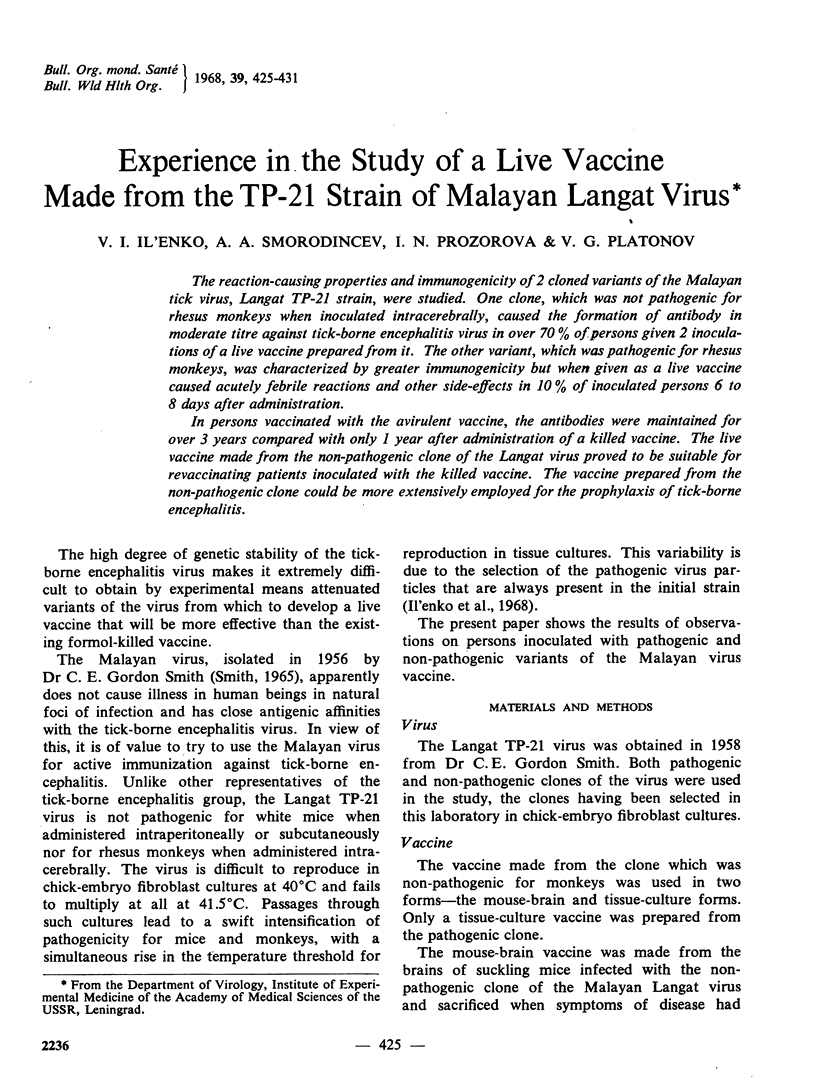
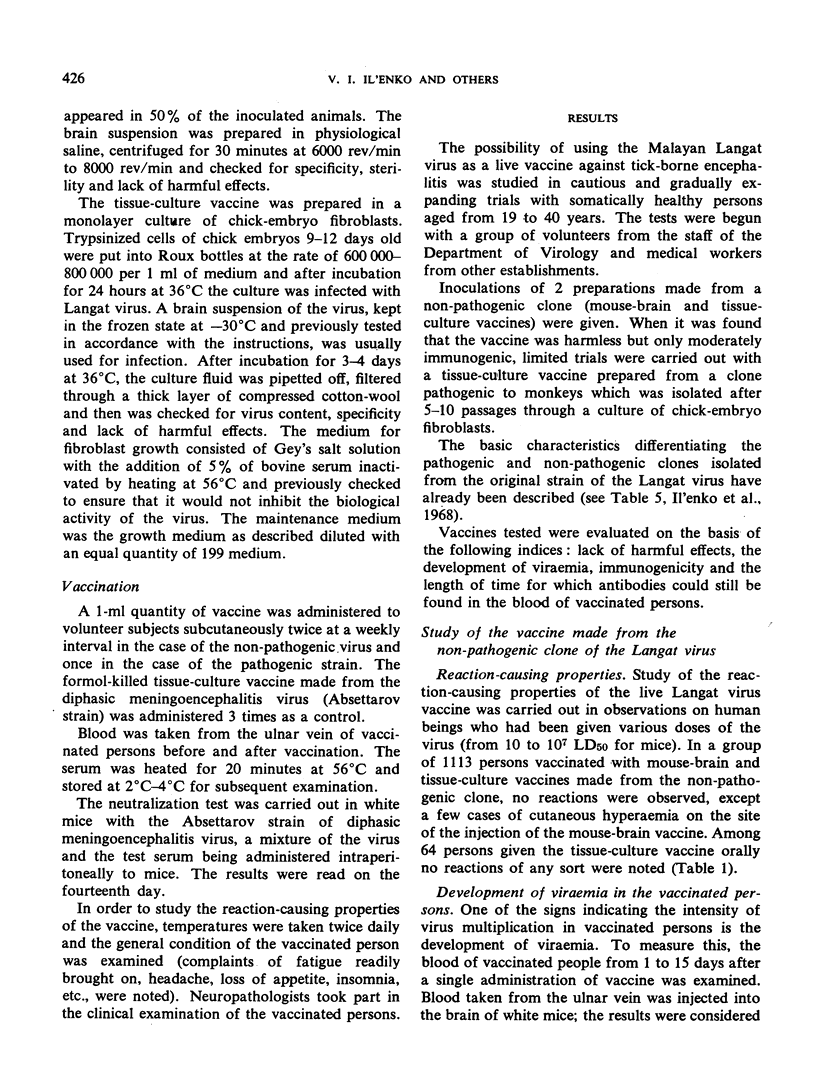
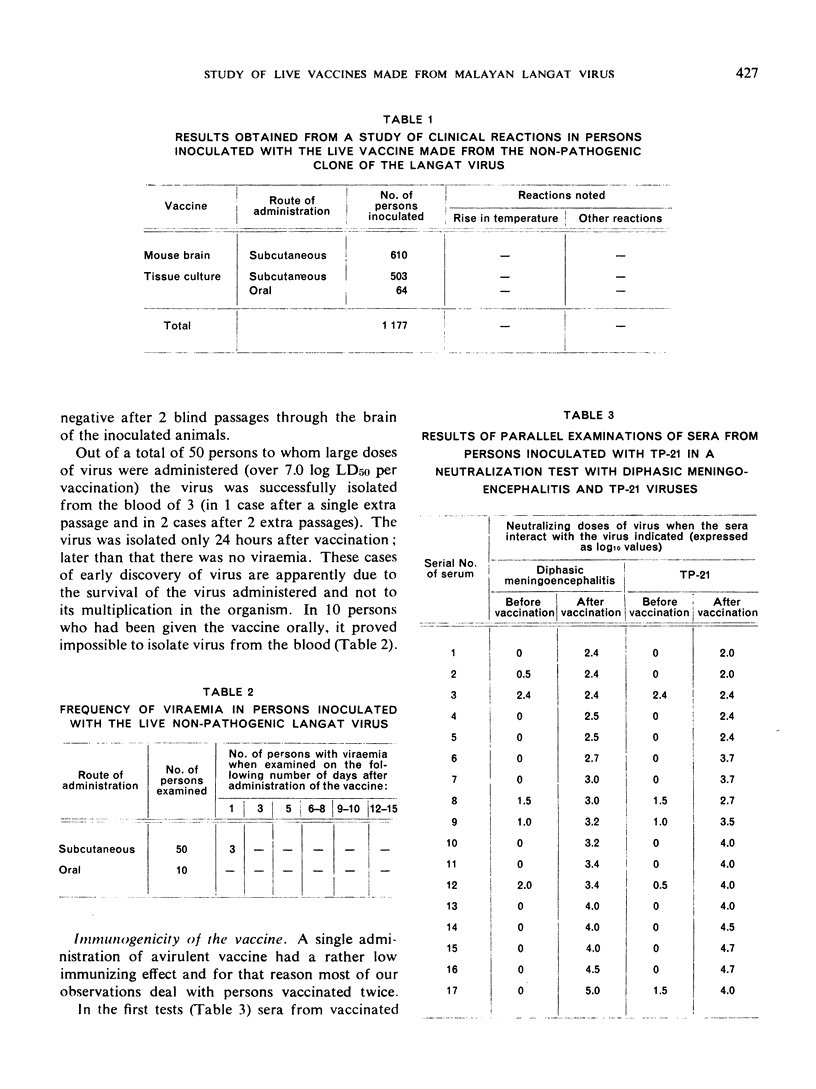
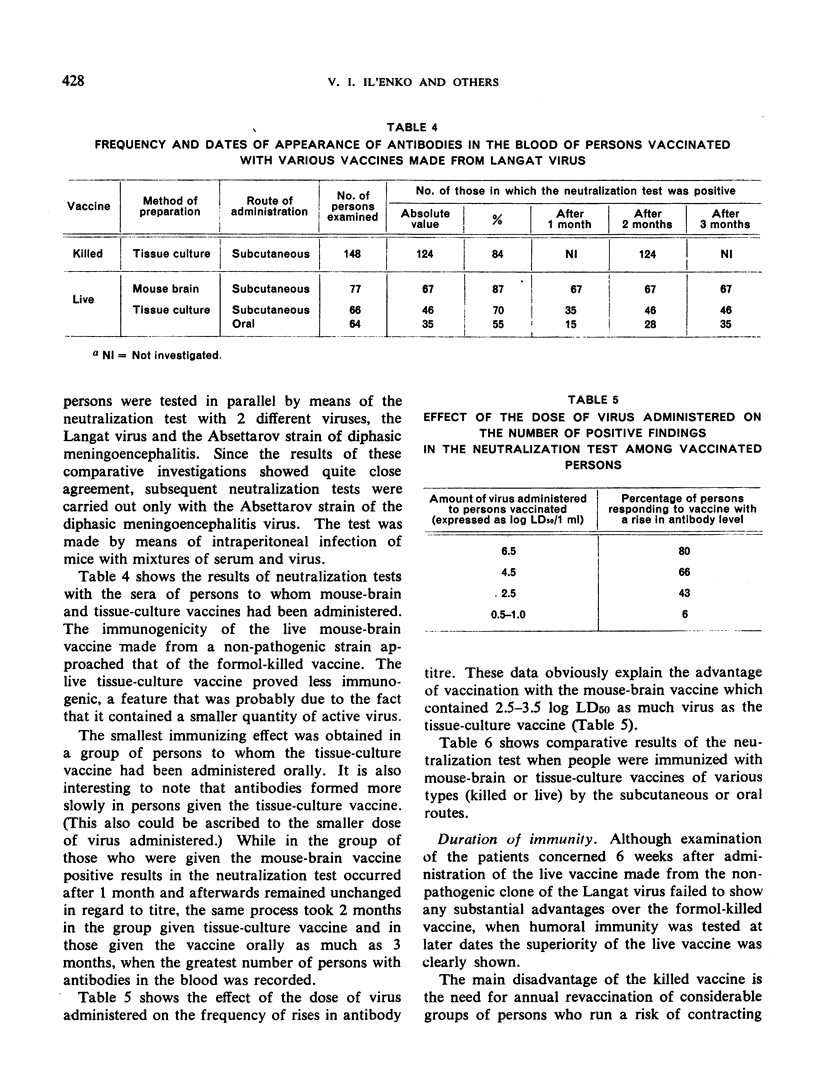
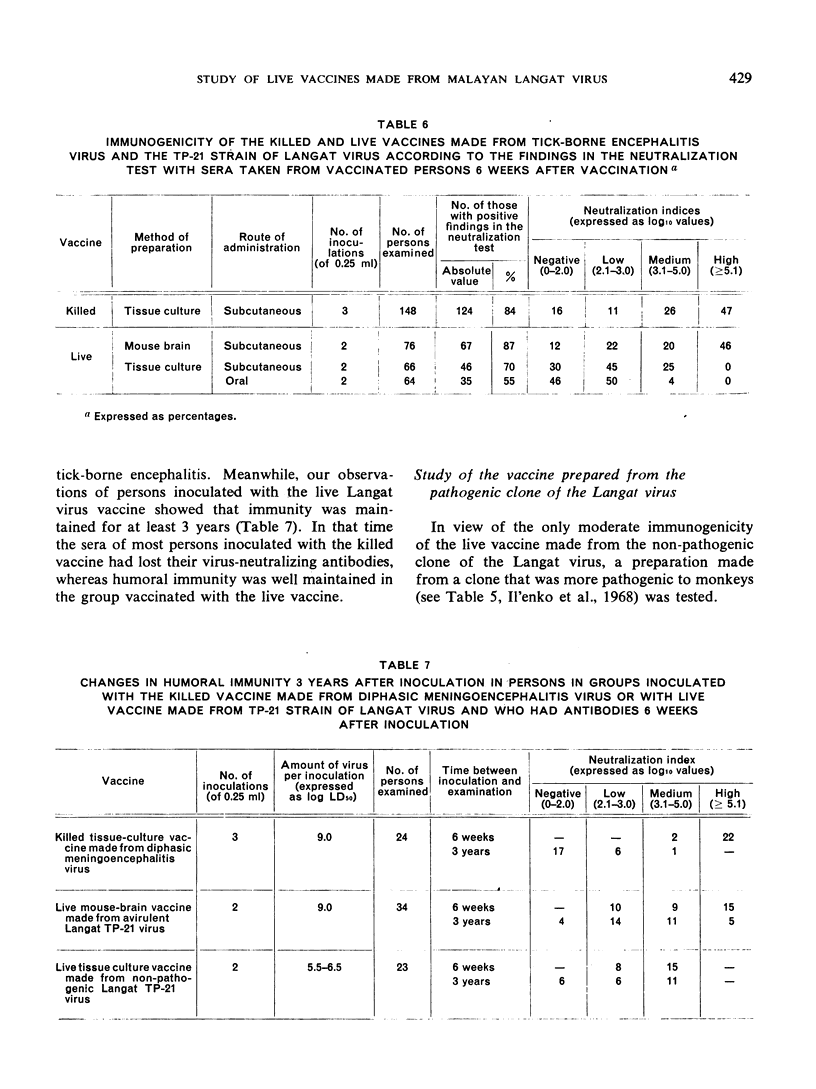
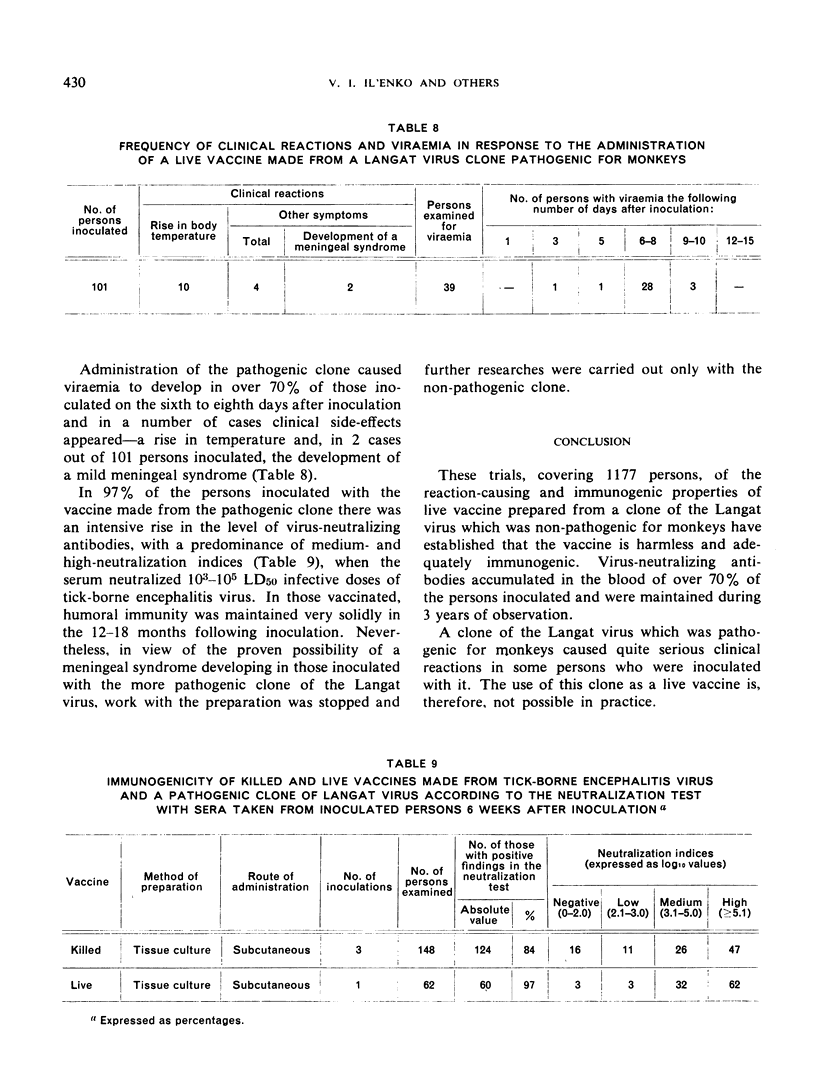
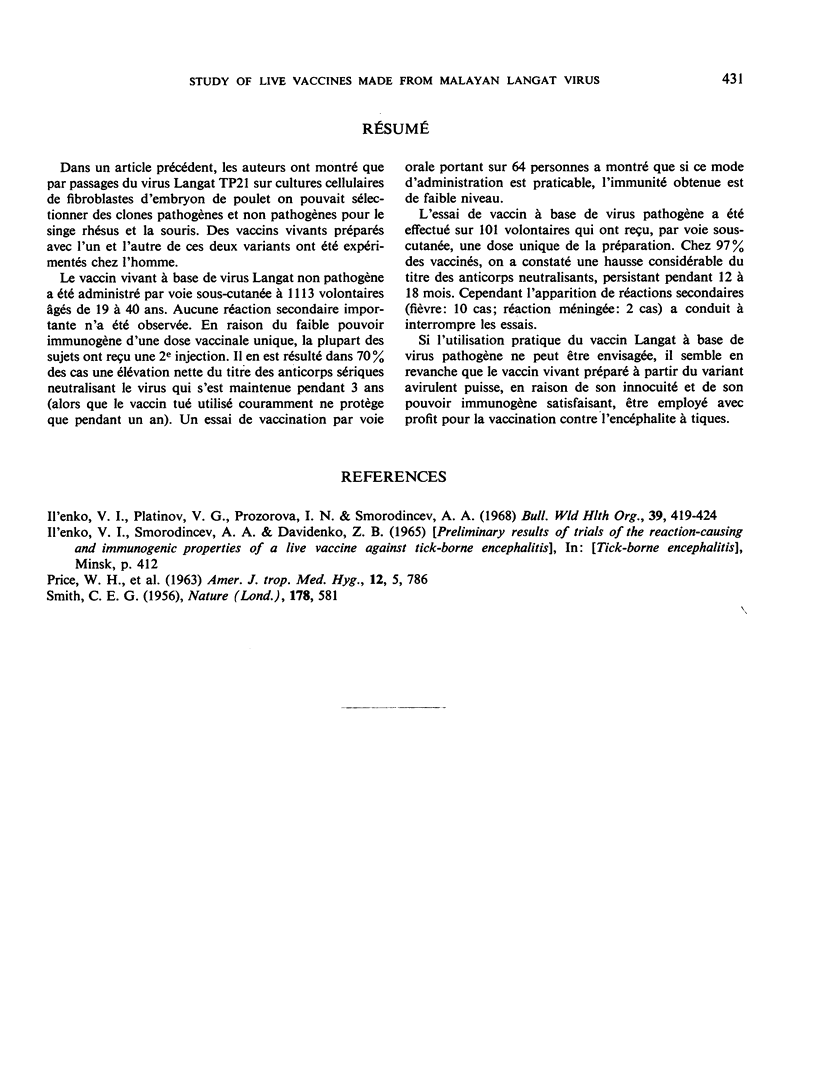
Selected References
These references are in PubMed. This may not be the complete list of references from this article.
- Il'enko V. I., Platonov V. G., Prozorova I. N., Smorodincev A. A. Material for the study ofvariation in the Malayan Langat virus (TP-21 strain). Bull World Health Organ. 1968;39(3):419–424. [PMC free article] [PubMed] [Google Scholar]
- SMITH C. E. G. A virus resembling Russian spring-summer encephalitis virus from an ixodid tick in Malaya. Nature. 1956 Sep 15;178(4533):581–582. doi: 10.1038/178581a0. [DOI] [PubMed] [Google Scholar]



